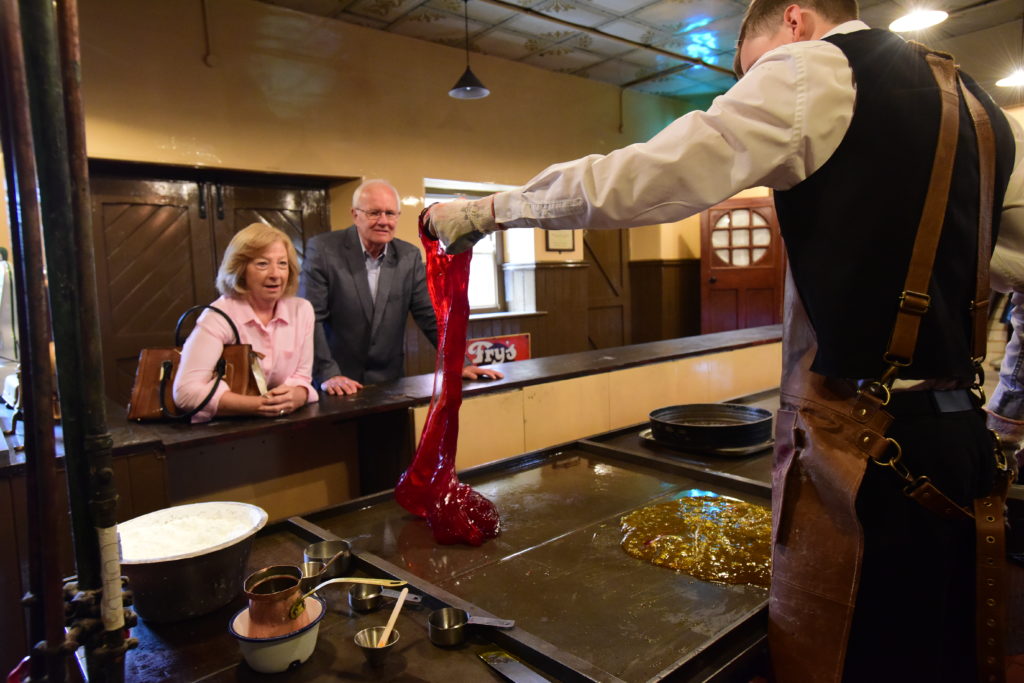Why not take a tram to The 1900s Town and enjoy a trip to The 1900s Town Sweet Shop during your next visit to Beamish?
Our Sweet Shop is the perfect place for those with a sweet tooth! Jubilee Confectioners was built to represent a typical town sweet shop, selling a whole host of mouthwatering treats.
Visit the factory at the back of the shop to see how sweets are made, using techniques and equipment from the era.

Our delicious sweets are also available from the Beamish Museum Online Shop so why not get your favourite Beamish treats delivered straight to your door?!
Sweets are sold subject to availability. Please note – some of our sweets may contain nuts.
If you own a shop or local business and would like to stock our delicious, handmade confectionery, you can find out more about wholesale sweets from Beamish Museum here.
Did you know?
Most sweet shops in the 1900s would be small and family-run with the family often living above the shop.
Popular North East sweets included black bullets, cinder toffee, blacks and rasps and fish in the sea.
Sweetmakers in the region included George W Horner and Co of Chester-le-Street, Redheads of Blyth, J Welch of Whitley Bay and J Vose of Durham (whose mint rock was promoted as being “invaluable to mental as well as physical workers”).
Sweets were originally developed for medicinal reasons, to make tablets more palatable. They were soon sold for flavour alone but some were promoted for health, such as sarsaparilla tablets, popular on Wearside, which were advertised as being good for blood circulation and rheumatic pains.
